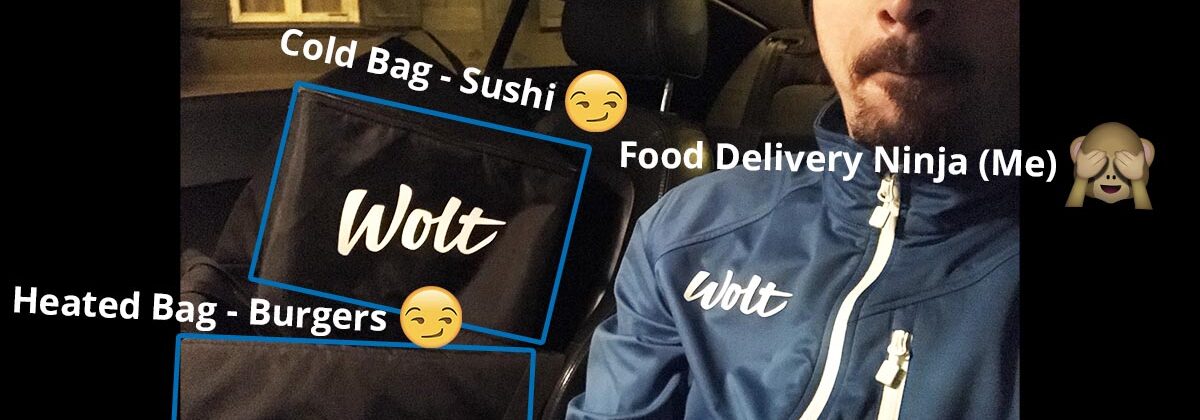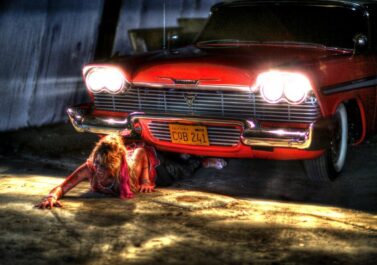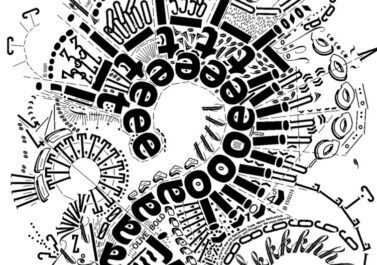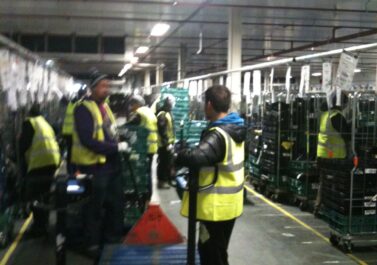I’m from Selby in Yorkshire. When I was 18 I got involved with a food bank and that was run by the Tressel Trust, with many volunteers in the Labour Part so I joined that. Then I decided to go to uni and do politics and that was the time that Jeremy Corbyn was coming up and talking about the importance of joining a union. I was doing this part time job for a magazine company and they were not paying us on time so I talked to other people working there and asked them if they would join a union and I ended up getting involved with the UNITE North West branch and got the others to join. We sent the company and email saying we wanted to be paid on time, and that we were prepared to get our union involved and straight away they agreed to pay regularly.
Then I went to Denmark for a year as part of my uni course and there I started working for the Danish equivalent of Deliveroo called Wolt. We were all bogusly self-employed but I heard some people were joining a union called 3F and I joined them and we set up the Wolt Workers group, who were a group of workers working with 3F to try and improve conditions in the workplace
3F covers the distribution sector. These big unions usually go to an employer without any reference to the workers and get a deal. Sometimes the unions there are almost like part of the state. What we were doing was very different because we were actually organising the people from the bottom up and this got us a lot of media attention and put pressure on the company. Everyone was involved in the negotiations. It forced the company to sit down and begin to negotiate a collective bargaining agreement within a year of our group forming. They had been dead against that before.
Because we were all self-employed, basically precarious workers, when covid started we were told ‘if you don’t want to work you don’t have to’. That’s all well and good but if we don’t go to work we won’t get paid. So we were expected to carry on as normal but if we called in sick, say for example we were having covid symptoms, we’d get a strike against our name and if you get seven strikes they won’t employ you any more.
The virus wasn’t as bad in Denmark as it was in the UK but when it started we didn’t know how it was going to develop. There was a massive increase in demand as people ordered takeaways and Wolt became one of the fastest growing companies in Europe but we didn’t see any increase in pay or compensation for the fact we were putting our lives at risk
We had to wear masks going into restaurants to pick up deliveries and then because most people live in flats we were having to go into buildings to do the deliveries. We would ring the door bell and leave it outside the door. At the start we couldn’t do much more than make the whole process non-contact but what people did do was tell each other where to buy hand sanitiser or masks because they were all sold out so our workers would post on the chat about places you could go and buy stuff before it all went .
So we’re taking all these risks because if we didn’t we wouldn’t get paid. Of course there was no sick pay but because the company realised we were organising the Wolt Workers group they made an offer that if someone got covid and got a sick note they would pay you a small amount but so small you couldn’t live off it and this was only for people who could get a sick note. If you were self-isolating for some reason, say because you lived with someone at risk, then you got nothing.
We had a big face book page with all the Wolt couriers in Denmark on it, thousands of people, and people were saying that we should get more money for the risks but the management were very clever at playing the whole ‘heroes’ thing, saying we were all heroes. A lot of people bought into this narrative, that we are all in this helping people but when you looked into it our bosses were becoming millionaires on the back of this virus while we were out there putting our lives at risk. So while some people bought into this idea that we’re all ‘a team’ other people were joining our union. The virus just made even clearer the problems of precarious workers and people who had only thought about the union now saw the point of it, people saying like ‘my mums vulnerable and I live with her so I can’t work but I don’t get paid’ . I would say that the effects of COVID polarised the workforce.
But covid made it harder to organise because you couldn’t meet in person which is a big deal for precarious workers. You don’t have a physical work place and you don’t know the people you are working with so face to face meetings are so important and now we couldn’t have them. Also we were just having pay negotiations with the company and were supposed to have a meeting with them just after the covid hit so those meetings were postponed for about 5 months. So organising fell to just a small group and wider meetings became impossible while all the time the company was pushing this ‘you’re heroes, we’re all a team’ mentality.
The workers fall into two main groups – overseas student who are working part time and usually only stay for less than a year. Then there’s the full-time people and they are mostly Iranian, Iraqi and eastern European. Not many native Danes. Most foreign people arrive not speaking Danish and it’s difficult to get a good job without the language So new immigrants struggle to get a job and Wolt gives easy access to work but you don’t get any of the rights which full time employees get in Denmark
Unless you are able to book a shift in advance – and the booked shifts go really quickly – then you just get paid per delivery which is unheard of anywhere else in Denmark and this was another reason we got a lot of coverage in the media.
There are not many black people in Denmark compared to the UK but about 5000 people went on the first BLM demonstration and these carried on for the next three Sundays. I had some BAME friends in Denmark who were quite involved, so myself and other people I was organising with were involved in BLM, but I would have been anyway as it’s something I really agree with. But it didn’t really have anything to do with our work place, with our Wolt workers group, and we had got into trouble before for putting up stuff that was too political and it tends to be controversial and distract away from our main message, so it is something we tend to avoid, people saying I’m not joining a political group. When you’ve got such a wide section of people as our union had its hard to get a political strategy that appeals to everyone so we felt putting up political things was just noise and distracting people. So quite a few of the Wolt organisers were getting involved in the BLM but we were just sharing that in a personal capacity.
Now I’m back in Manchester to finish my degree and I’ll be looking for part time work, though that’s going to be hard.



